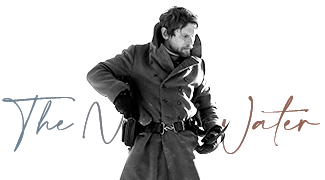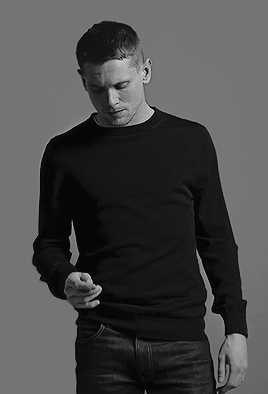One of the major pleasant surprises at last year’s Toronto International Film Festival, ’71, a gripping and thoughtful drama set in Belfast during The Troubles, hits theaters this Friday. The film stars soon-to-be-household-name Jack O’Connell as Gary Hook, a British serviceman trapped behind enemy lines during a night of intense sectarian unrest.
O’Connell may be best known for his work on the U.K. soap hit Skins, but 2014 set him on a trajectory for Hollywood’s A-list. While American audiences might have spotted him in 300: Rise of Artemisia, it was the critically acclaimed British prison drama Starred Up, and Angelina Jolie’s Unbroken that cemented O’Connell as the potential next “it” actor.
We caught up with O’Connell (and the film’s director, Yann Demange) back at TIFF to talk about what makes ’71 a unique war story, and how he’s handling the demands of movie stardom.
Check it out below, and enjoy!How did you come to be attached to the film?
Jack O’Connell: Jina Jay, who cast ’71, I’ve got a good relationship with. So she made the right noises to Yann [Demange] and he just wanted to get together and meet me. It was like a straight-out offer, he had decided that I was his Gary, and he was going to make it work. That was flattering, it was the first time in my career that that had happened. So, beginning last year, I had three films, back-to-back. Well, one of which being Skins, but that kinda felt like a movie shoot as well. That’s how it came about, but it was very challenging to do three jobs, three very different characters, back-to-back.What is it about the Hook character that makes him a unique centre for an action movie?
JO: I’d say because we see him as a human, we don’t know if he’s capable to get through it. He’s not a stone-faced killer, he’s not a savage. He loses his best mate, he’s got a relationship with his younger brother which is vital to him. He has to return, otherwise his brother’s f***ed. There’s no selfishness to him, so he’s got a good reason to get the f*** out of there. But he’s so out of his depth, and he’s a young lad. It’s quite plausible that’s been the case; if I was witnessing this as an audience member, I’d really appreciate the lack of bulls*** that we offer.Do you think Yann’s accomplished that: a film free of bulls***?
JO: Yeah, yeah. We never try to perpetrate, or assume, or point fingers, or explain anything that hasn’t already been discussed. It’s not a revelation, hopefully we’re exposing the cost on ground level. We see the lack of animosity between Gary and, who were at the time, his enemies. And we see how brainwashing takes its toll, and how that then escalates into these conflicts.It’s a hard film to pin down. What’s the first word that comes to your mind when you try to explain what it is to people?
JO: I hear the word “thriller.” But I never set out….or certainly on set, I didn’t feel like we were making a thriller. I guess in a word, it’s an “insight,” isn’t it? We’re portraying it on ground level, and we see costs like that. We throw out questions afterwards. So instead of boring an audience with low-budget cinema – with a portrayal of the politics and where this war started – we’re just in there. And it is thrilling, and that was Yann’s job, to provide that. But for me, I was portraying someone who, for as far as I was concerned, existed.Did you film ’71 before or after Starred Up?
JO: After.So did that make it hard to switch into a character that is very vulnerable and reactionary?
JO: Sure. That’s where Yann came in, and that’s why I’m here. With a lesser director I’d have been f***ed. So, I’ve come out here, mainly to support Yann because of his support for me during the shoot. He was always there to remind me when I was, perhaps, reverting back to something that I should have left in Belfast – funny enough, we shot Starred Up in Belfast, and then ’71 in Northern England. So that was his expertise, to have that sensibility, and enable and steer me in that way. I didn’t know the answers in this one, I don’t think anyone who’s in a realistic, life-threatening situation knows all the answers, you know?Was Yann who you would go to when you didn’t have those answers yourself?
JO: Yeah. I mean, he was always available like that, but it wasn’t continuous. Sometimes I was trying to make my own mind up, and we had experts around the set as well. I knew the cinematography was going to be brilliant, because I trusted the people in charge. So there were all these elements in the film where I could find conviction, and I knew I was in a different beast all together, but it’s so f***ing physically enduring, that shoot. It was bad, man, I made myself ill.What was straining you?
JO: The repetition of the running, stunts, and perhaps not the necessary attention to people’s safety. It results in bust-ups, and it wastes times. But I guess that’s all part of the process.How’s it been handling all the publicity and work lately?
JO: Young as I am, 24, I started going out partying way before the legal age. I don’t have a lot of curiosity for that, I don’t feel any desire to be out on a Friday or Saturday night doing any of that s***. I think it’s very important the things I decide to do between work. So if I can just concentrate, knowing that I’ve got work coming up, if I can concentrate while I’m recouping myself, rejuvenate, it means I’ve got something to offer. It’s a full-time job, and I’ve always wanted to be here, but it’s a sacrifice.What are you hoping people are going to be saying once they’ve seen the film?
JO: I just hope they feel like they watched a lot of honesty onscreen. I hope they feel enlightened by that version of honesty, not glorification of war. We all have a responsibility in this industry to tell proper stories amidst entertainment. I hate the term “war porn,” I f***ing hate that terminology. I find it insensitive, quite beyond belief. But it exists, and I’m going to be steering clear of war porn.I don’t think anyone would accuse ’71 of that title, but it was Truffaut who said there’s no such thing as an anti-war film. Would you say ’71 is trying to be an anti-war film?
JO: It’s a depiction of war. In that sense, it can’t be an anti-war film, because otherwise it would so blatantly be an anti-war film that it doesn’t become interesting. We have to make out own minds up during that depiction. We certainly don’t glorify it, and the idea isn’t to tempt anyone into finding themselves in that situation, but again, we wanted to provide a reasoning for people on either side. All too often, you don’t see both sides of the story portrayed at the same level of attention and decency. I don’t think we can be accused of that.
emily – February 26, 2015
















